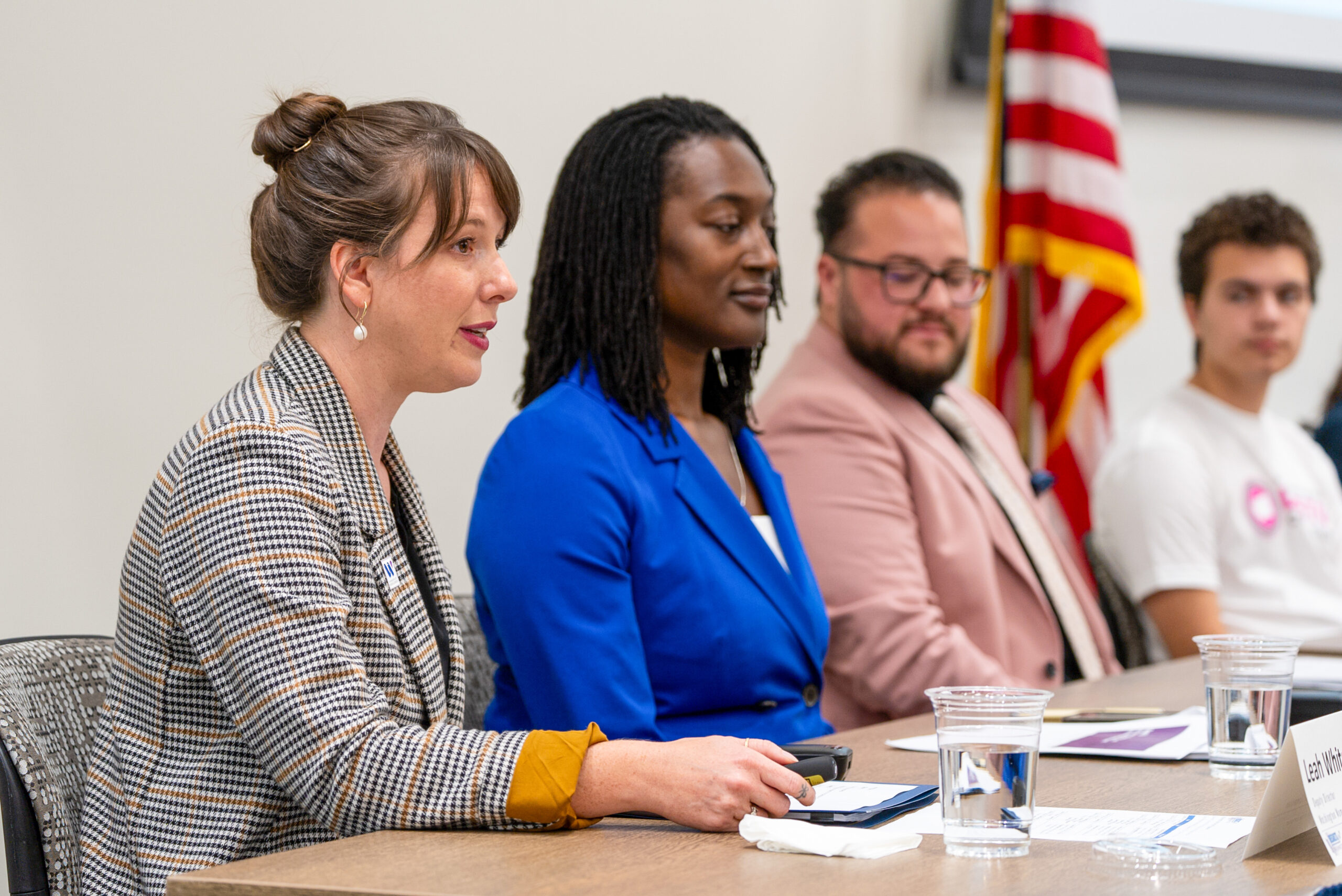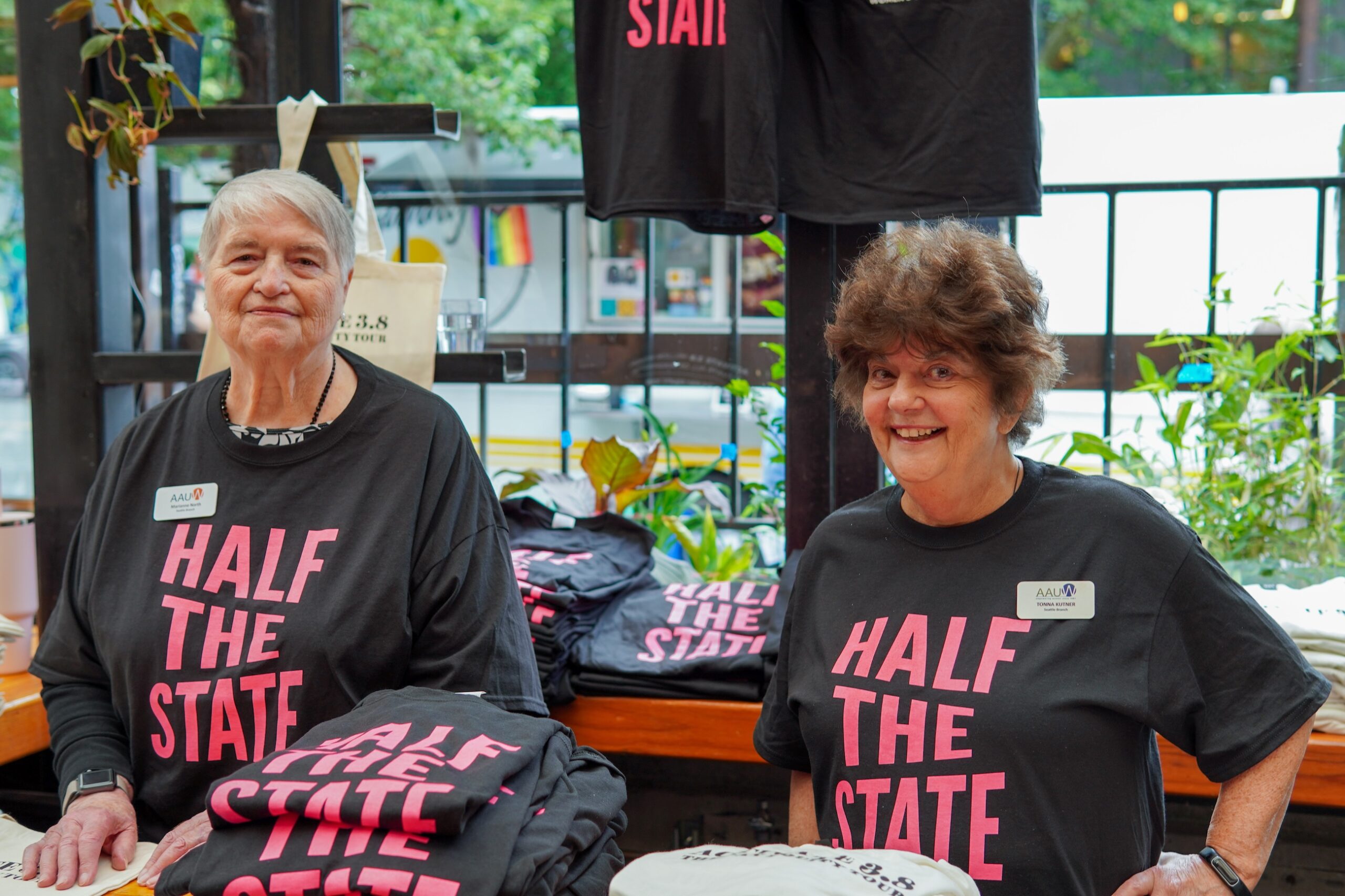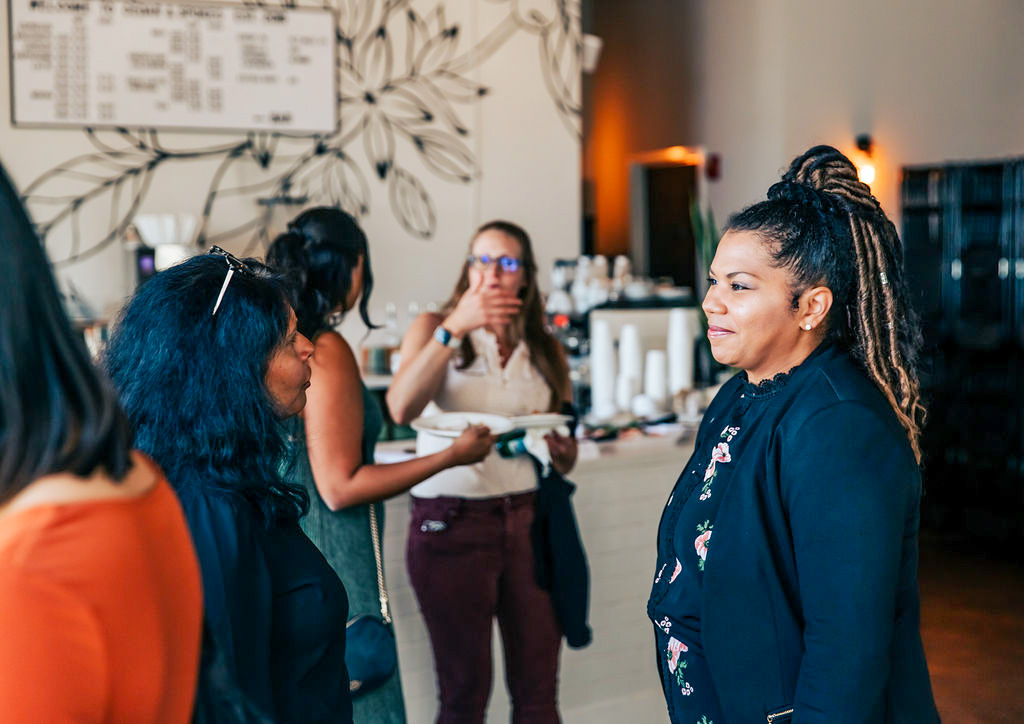Raising Awareness: The Missing & Murdered Indigenous Women & Peoples Crisis
May 5, 2024
The Urban Indian Health Institute (UIHI) reports that murder is the third leading cause of death for Native women. In the institute’s ground-breaking 2018 report, UIHI found Washington had the second highest number of cases of missing and murdered Indigenous women and girls across the country.
UIHI’s report catalyzed a crucial development in Washington State; the creation of the Missing & Murdered Indigenous Women and Peoples Task Force. In 2021, the Washington State Legislature voted to establish a task force housed in the Office of the Attorney General. The 23-member team led by Attorney General Bob Ferguson has worked tirelessly to address the centuries-old and deeply rooted crisis of disproportionate violence against Indigenous people in the Northwest. Some of their areas of focus include data collection practices, increasing resources and support for families and survivors, and improving policies to better equip law enforcement to solve and resolve cases.
Washington State Women’s Commissioner Vicki Lowe is one of the members of the Task Force. We sat down with Lowe to discuss the history behind today’s Missing & Murdered Indigenous Women & Peoples crisis as well as the work being done in Washington State to protect Native people from disproportionate violence.
Interview with Commissioner Vicki Lowe (S’klallum / Nuxalk)
Vicki Lowe: ʔə́y̕ skʷáči, Vicki Lowe cə snas stətíɬəm nəxʷsƛ̕áy̕əm̕ cə snas nuxalk. My name is Vicki Lowe. I am Jamestown, S’klallam and Bella Coola First Nations. I am the Executive Director of the American Indian Health Commission, which means I work on behalf of the 29 tribes and two urban Indian health programs in Washington State.
Can you discuss the history behind today’s MMIWP Crisis?
Vicki Lowe: Our people have been killed without any repercussions for it.
We had Indian wars in Washington state. When the federal government came here to negotiate treaties, they brought the military and Native people were killed. When Natives fought back, that was murder. When they were murdered by the military, that wasn’t murder. There were no repercussions for our people dying.
It’s the same with the boarding schools. They came and took kids as young as four years old from their parents. They took them to these schools, cut their hair, wouldn’t let them talk to their siblings, wouldn’t let them speak their language. Many of them didn’t survive. Those that did survive had long lasting generational mental health issues that they’ve passed down. Again, [there were] no repercussions for that.
Never holding people accountable for what they did to Native people makes it easier to keep doing that.
What existing practices contribute to ongoing unsolved and unresolved violence against Indigenous communities?
Vicki Lowe: One of the things that happens a lot is that there’s a lot of blame. So [law enforcement] are like, “Are you sure they’re missing? Did they run away? Or you know, they’re transients.” Based on what they think is lifestyle… they think they don’t deserve to be found.
There have been times when people have been trafficked and get arrested for it and end up having a record because of something that happened to them. Indigenous people who have been trafficked should get access to services and should not be treated criminally. That can have just like such lifelong impacts for them.
We need to really be able to remove judgment and understand that people become vulnerable. People don’t deserve to be trafficked and they don’t deserve to be murdered because they’re vulnerable. The judgment is the hardest and it’s felt.
For the families and people who survived being trafficked, it’s sort of almost taboo to talk about. There’s nothing wrong with these people. They didn’t do anything wrong. These things happen to them.
If you had all the power to make a systemic change and help resolve this crisis, what would you focus on?
Vicki Lowe: When Tribes were first sent to reservations under treaties, the federal government came back later and took more land away from them. They divided up the land in a checkerboard style. You could have a piece of land that belonged to a Tribal member right next to a piece of land that belonged to a settler, each piece of land with a different jurisdiction.
Today, if you go to Tribal land and commit a crime, there’s so much confusion about jurisdiction that people get away with stuff.
Resolving the jurisdictional issues is the number one thing that is going to help and that includes providing resources. Tribes are under-resourced in many ways and law enforcement is one of them.
Lowe is a part of the 23-member Missing & Murdered Indigenous Women & Persons Task Force housed under the office of the Attorney General. The Task Force was founded in 2021 and has since made incredible strides in addressing the MMIWP crisis.
Can you describe some of the MMIWP Task Force’s successes?
Vicki Lowe: I sit on the Law and Justice Committee. The issues with jurisdiction came up right away. The Tribal law enforcement was not getting their warrants honored off of Tribal land. Some of the Tribal law enforcement are non-native people. They were we have a work around and we can make it work.
And I was like, any time you say I have a workaround that’s an institutional barrier. But I don’t think they were used to discrimination in the way that I am and couldn’t spot it.
So, we’ve worked that out. This last legislative session we worked with Rep. Debra Lekanoff (Tlingit) on the Tribal law and those Tribal warrants are now honored off of Tribal land.
There’s still some work to do on it, but it’s good to see because of the Task Force, this stuff moving forward and getting resolved.
The MMIWP Task Force is an example of how effective policy work can be when it is grounded in the knowledge of the effected communities.
Vicki Lowe: We have a subcommittee of families and survivors, and then the membership from that committee sits on each of our other committees to make sure that we’re always grounded in their work and in their experience.
At the beginning of Task Force, we began with 4 hours of testimony from families and survivors, which was one of the hardest things that I’ve ever done — sitting and hearing that. But also knowing that they live with that every day. Some of them with family members that they don’t know what happened to them.
In our last report, there were over 163 unidentified remains in Washington state that are known to be indigenous. But there hadn’t been enough funds to identify them. We also got funding last legislative session to help start identifying those so families can have closure.
Our [the Task Force’s] first piece of legislation two years ago, was for a missing Indigenous person’s alert, which is like an Amber Alert. Our people are just as important as children or elders, they’re vulnerable and they need to be found too.
That took down the process of getting an alert out from two days for Tribal liaisons at the Washington State Patrol down to 20 minutes. The very first alert, the person was found right away.
The work of the MMIWP Task Force has been extended to June of 2025.
Resources
- Read the MMIWP Task Force’s December 2023 Report.
- Access the National Missing and Unidentified Persons System (NamUs).
- Call the Native Hub resource line and get connected to statewide resources.
- If you are experiencing a mental health crisis call the Native & Strong Lifeline at 988 and press 4.
- Find services and funding for survivors of sexual violence crime at the Washington State Department of Commerce site.
- Read President Biden’s Proclamation on Missing and Murdered Indigenous Persons Awareness Day.
ABOUT THE WASHINGTON STATE WOMEN’S COMMISSION
The Washington State Women’s Commission, created by the Washington State Legislature in 2018, aims to improve the well-being of women by identifying and developing policies to remove systemic barriers and address critical issues that disproportionately impact women, including childcare access and affordability, domestic and gender-based violence, equal pay, and intersectional inequities.
Learn more at wswc.wa.gov.



